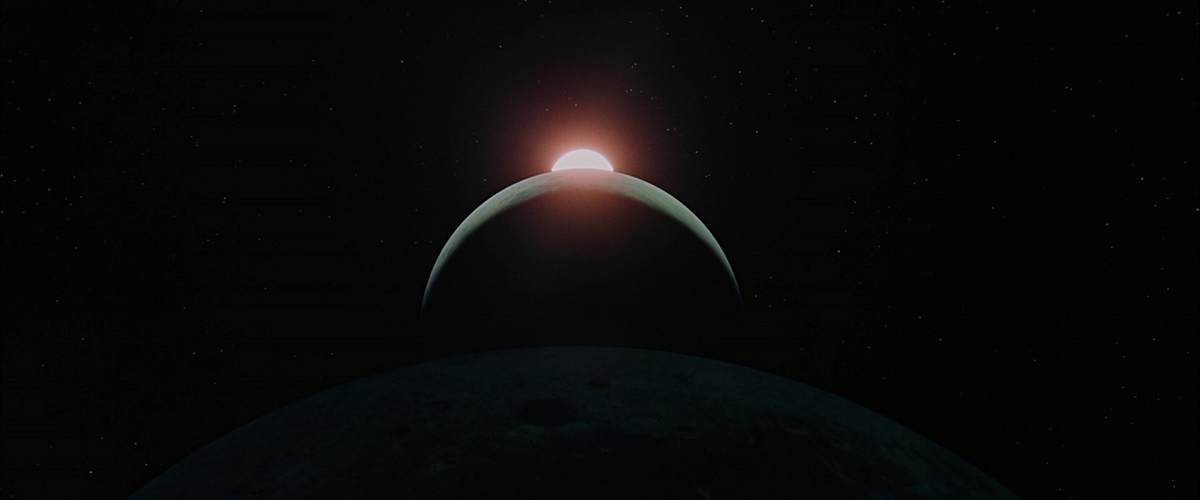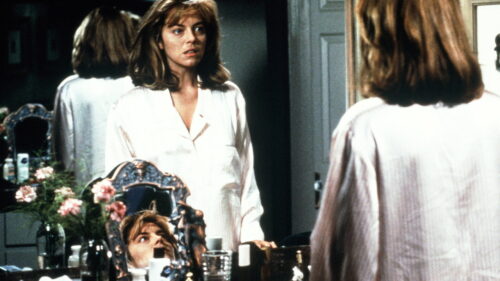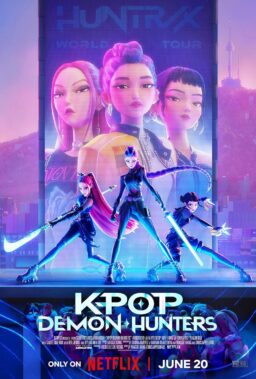“2001: A Space Odyssey” is a tale of evolution. Roger Ebert’s relationship with Stanley Kubrick’s classic is likewise marked by leaps forward in understanding. Read through his writing on this film throughout the decades, and you see a sensibility growing by leaps and bounds.
His original review of the film, published on April 12, 1968, the day of its commercial release in Chicago, is filled with conjecture and observations that he would amend or revise. But the heart of it holds up well, especially when judged against the writing of critics, historians and theorists who had ten, twenty, or more years’ worth of previous writings to take for granted while writing their own essays. Roger was one of the only significant newspaper critics of that era to get “2001: A Space Odyssey,” Kubrick’s landmark science fiction film. when it was originally released. He “got” it by not trying too hard to get it, much less dismiss, explain or master it. In an act of moviegoing humility that was characteristic of Roger (although, being human, he didn’t manage it in every single instance), he gave himself to the work. He approached it with an open mind, treating it as a visual, visceral, and emotional experience as well as an intellectual one.
Roger complains high up in his original review that the movie “fails on the human level but succeeds magnificently on a cosmic scale,” without quite grasping the intentional nature of Kubrick’s approach. But he correctly intuits that “the machines are necessary because man himself is so helpless in the face of the universe,” and ties this in with Kubrick and co-writer Arthur C. Clarke’s conflation of tools and weapons, which allowed humans to take territory by force, dominate enemies and lesser animals, and expand their spheres of influence. Roger describes the psychedelically flavored final act, which sees astronaut Dave Bowman (Keir Dullea) deactivating the murderous HAL-9000 computer and piloting a space pod into a monolith orbiting Jupiter, as occurring “in a universe where time and space are twisted.”
The finale points the way towards Roger’s later writing on the movie:
“What Kubrick is saying, in the final sequence, apparently, is that man will eventually outgrow his machines, or be drawn beyond them by some cosmic awareness. He will then become a child again, but a child of an infinitely more advanced, more ancient race, just as apes once became, to their own dismay, the infant stage of man. And the monoliths? Just road markers, I suppose, each one pointing to a destination so awesome that the traveler cannot imagine it without being transfigured. Or as cummings wrote on another occasion, ‘listen—there’s a hell of a good universe next door; let’s go.’”
By the following Sunday, April 21, 1968, Roger had refined his thoughts. He published a much longer piece that attempted to explain how to watch the movie without exactly explaining what he believed it was about. Titled “The Monolith and the Message,” it’s about audiences, and their reluctance to actually engage with a film like “2001.”
It begins, “Good parables explain themselves. After you have read the story of Lazarus in the Bible, you don’t need anyone to explain it to you. The same is true, I believe, of Stanley Kubrick’s parable ‘2001: A Space Odyssey.'”
From here on out, Roger tries to be as nice as he can, but you can sense his irritation with people who want somebody to supply answers even though they aren’t interested in doing the work required to arrive at one on their own. “I went to see it again last week and was surrounded by the mumble of many conversations,” he writes. “Some of the whisperers were trying to figure out what was going on. Others were just killing time. Making up grocery lists, I guess. After the film was over, someone suggested that maybe MGM should require an IQ test before allowing people into the theater. I can understand that point of view. If people do not have the courtesy to shut up during a film, they should at least be segregated into special Saturday kiddie matinees, no matter how advanced their years. Silence and attention are especially useful during ‘2001: A Space Odyssey’ because here for once is a film that makes a total statement. You cannot really understand part of it until you have seen all of it. Then, afterwards, you can go back and fill in the missing places. But while it is there on the screen, you should simply let it happen to you. No questions. No whispers. Let the movie have its chance.”
Following this is a section where Roger implores viewers to stop getting so hung up on decoding the film and just experience—and think about—the images, the music, and the movie itself. This is expressed in hypothetical conversations with an impatient viewer who just wants to skip ahead to the part where answers are supplied. Roger’s answer to those sorts of questions is always some variation on, “This thing is what it is”—a notion that ties in with his opening statement “Good parables explain themselves.” He’s constantly trying to steer people back towards the idea of experiencing the movie as a movie, sitting with it, then coming up with their own reaction, as one might after encountering a painting or a poem.
“Q. What’s that big black monolith?
A. It’s a big black monolith.
Q. Where did it come from?
A. From somewhere else.
Q. Who put it there?
A. Intelligent beings, since it has right angles and nature doesn’t make right angles on its own.”
He elaborates: “Now it would seem that these are obvious observations. But audiences don’t like simple answers, I guess; they want the monolith to ‘stand’ for something. Well, it does. It stands for a monolith without an explanation. It’s the fact that man can’t explain it that makes it interesting.”
Summing things up near the end, he writes, “Man is a curious animal. He is uneasy in the face of great experiences, and if he is forced to experience something profound, he starts immediately to cheapen it, to bring it down to his own level.”
Roger continued to write about and talk about “2001,” often in relation to other science fiction movies that seemed partly inspired by it. I remember him and Gene Siskel talking about it in relation to the phrase “a sense of wonder,” and grouping it with “Close Encounters of the Third Kind” and “Star Wars” (which, I recall Gene saying, “in its own silly, corny way, had it”]. He brought it up often in reviews of films that expressed big ideas visually, or tried to, and when writing about films that used the latest in filmmaking technology to make observations about human nature.
By the time Roger wrote a “Great Movies” piece about “2001,” in 1997, he’d had almost 30 years to think about Kubrick’s film, and he was in a somewhat mellower place, willing to genuflect in the direction of answers, if not to actually supply them. Although he continues to be adamant in his insistence that viewers treat the film as an experience, first and foremost: an object of contemplation, a parable in motion.
“The genius is not in how much Stanley Kubrick does in ‘2001: A Space Odyssey,’ but in how little,” he writes. ‘This is the work of an artist so sublimely confident that he doesn’t include a single shot simply to keep our attention. He reduces each scene to its essence, and leaves it on screen long enough for us to contemplate it, to inhabit it in our imaginations. Alone among science-fiction movies, ‘2001’ is not concerned with thrilling us, but with inspiring our awe.”
What’s especially notable about this piece is the amount of formal analysis Roger brings. It’s by no means unusual for a piece about a Kubrick film—he was among the most aggressively formalist of directors, to the point where detractors considered him chilly and generally uninterested in human feelings. But it’s a testament to how thoroughly “2001” had permeated the minds of filmgoers over the decades that Roger felt comfortable spending several paragraphs discussing, for instance, the director’s decision to use existing classical music as his soundtrack, rather than going with the original score he’d commissioned from Alex North.
“North’s score, which is available on a recording, is a good job of film composition, but would have been wrong for ‘2001’ because, like all scores, it attempts to underline the action—to give us emotional cues,” Roger writes. “The classical music chosen by Kubrick exists outside the action. It uplifts. It wants to be sublime; it brings a seriousness and transcendence to the visuals.”
Roger also puts his finger on what I believe is the source of the ending’s enduring power: just as Kubrick gave us most of what we needed to know in order to get the gist of the film’s story, while stopping short of explaining things, the ending is the culmination of that strategy, in that it refuses to show us the aliens, or intelligent machines, or whatever the beings are that placed the monoliths throughout the solar system. “The alien race exists more effectively in negative space,” Roger writes. “We react to its invisible presence more strongly than we possibly could to any actual representation.”
The final paragraph hits much harder now than it did when Roger first wrote it, because it reminds us of his own absence, which affects fans of his writing almost as strongly as his presence did.
The movie, Roger writes, “does not hook its effects on specific plot points, nor does it ask us to identify with Dave Bowman or any other character. It says to us: We became men when we learned to think. Our minds have given us the tools to understand where we live and who we are. Now it is time to move on to the next step, to know that we live not on a planet but among the stars, and that we are not flesh but intelligence.”












